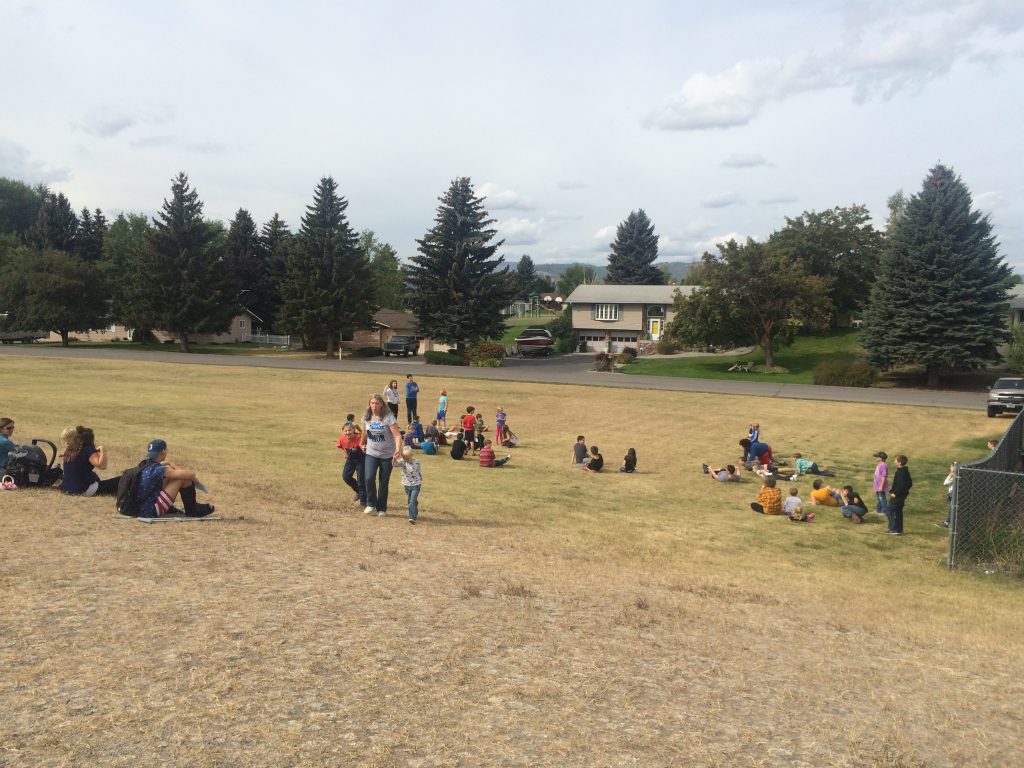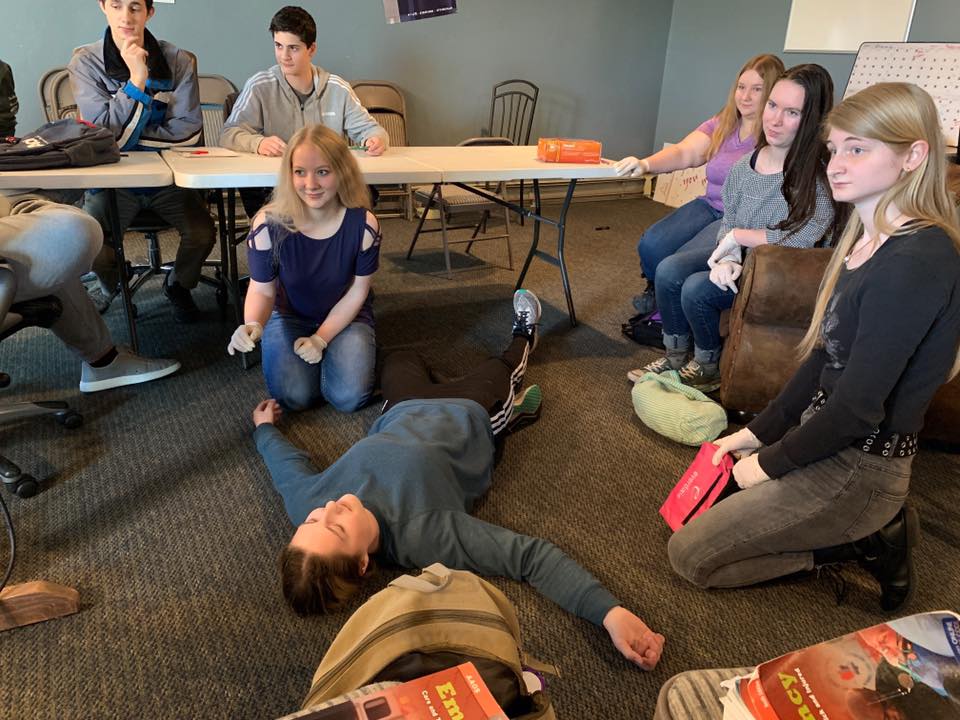
In this unsettled time period of lives all over the country, people are seeking out info on homeschooling that have never considered this as an option for education. It can be totally overwhelming.
So, I figured if we were in normal times, I would sit down with a cup of tea, hold an informational meeting or two, but we are not in normal times. I can do some phone calls, but I cannot do it for everyone.
This is the next best thing to try to offer some support and help in your beginning journey.
- State laws. – If you contact your local superintendents office, they will have the most accurate info for your area. You can also check here. State Homeschool Laws
- Cost-Depending on your state laws, generally the parent taking on homeschooling is responsible for costs, curriculum chosen, and ultimately the outcome of your child’s education. This is important as often we get questions asking for help paying for books, enrolling in “this school” or parents looking for 100% online program that requires them do none of the work. While yes, there are programs that are online schools, the child will still need a facilitator. That is a tough job and should not be discounted in the amount of work it will be.
- Choosing Curriculum: This is a very tough job. When I was starting school, there were very few choices for homeschooling, like less than ten. Fast-forward to when I was graduating, and there were more than triple that. Add ten years onto that, and again it tripled. The choices are fantastic, but it overwhelms even the most skilled in the area of homeschooling. There is always something new, bigger and better out there. Look below for some guidelines on figuring out the best one for you.
- Do the Work- This is the hardest one. It is easy when the books are shiny and new to be excited. But the biggest part of homeschooling is consistent work every day.

Homeschooling does not always have to just be books. Many people use enrichment classes taught by other parents or teachers to round out their homeschool curriculum or take the place of an entire subject. Many of them are offering online options if you are not comfortable meeting in person. Search on FB, google and other search options to see what is available in your area.
When choosing a curriculum, as we stated above, the options are vast. Narrow it down by figuring out your needs for learning.
- Type/Secular, Religious or Neutral
- Hands on, workbook, literature based
- Online vs textbooks
- Group learning vs individual
- Co-op classes or solely at home learning
Some of the ways you can determine this is by asking some questions. While your beliefs may be secular, ask yourself, “Am I okay if there is mention of other beliefs mentioned?” The reason I mention this is because there are still a majority of choices in the religious market vs. the secular. If you are religious, how important is that to be mentioned in every aspect of your curriculum? How are you making sure that you are not educating with a bias?
What are the milestones that I need my student to reach at the end of the year, by both state and my own goals?
How is the best way to do that?
In order to answer that, realize that basically you can pick almost any curriculum, and if you do the work with your child every day, they will advance and learn. If they do not and you are doing the work with them every day, there may be learning disabilities at play. But for a normal learning environment, if they do school every day, they will learn and advance.

There are the popular curriculums that many people will use. If you are new, sticking to the popular ones is more than likely going to meet your needs. Many new homeschoolers will say, “I just need an all in one package. I don’t want to have to pick and choose.”
Here are a few options of packaged curriculum:
AOP They offer online, text and off line on the computer options.
My Father’s World (You get to customize this one to your needs, so not totally packaged)
Then, if you look for a one stop shop where you pick and choose the publisher check out these companies. They sell secular and religious curriculum.
Then some of the smaller individual companies with great subjects!
I could go on and on, but the overwhelming part will continue. I would recommend to take a look at local lending libraries, other homeschooling parents that are using these curriculums and hold them in your hands. See if you can borrow them for a week and look them over.
For example, I love to read. I thought I would use Sonlight, a popular curriculum that is literature based. I borrowed a set to use with my first grader. It took me about a week to realize that I was glad I had borrowed it and didn’t purchase it. 2-3 hours of reading aloud was not something I could manage to make work for our family, even though we did love reading. For us, My Father’s World had the same amount of reading, but less assigned reading. I had the flexibility that I needed to still give a great school experience, but we were done with all our school in 2-3 hours, instead of just one subject. I had children with ADHD, dyslexia and other struggles. They needed me to focus on their needs and not feel like I was failing when I didn’t get the work done every day with the multiple teachers manuals and workbooks. I still love Sonlight, but it was not a fit for us.
Find what works for you or make it work for you. The perfect curriculum is not really out there, but you can make almost anything work for you. Adjust it if it needs it, offer little tweaks, but if you find yourself rewriting the entire thing and then complaining it doesn’t work, go back and try it like it was written. It might be that that is what will relieve the pressure off you.
In our state, we have a requirement for a certain amount of hours to fulfill a school day. This is very confusing for many new homeschooling parents and even experienced ones. Here is my advice based on talking to many teachers:
- Get a big blank calendar.
- Every day that you complete your subjects, count each subject completed as your educational hour. For example: If your student takes 20 minutes to complete a math lesson, that counts as their educational hour. On the flip side, if they take 3 hours to complete the math lesson, that still only counts as an educational hour. If your child needs 30 minutes of P.E. and they play basketball for 3 hours, it counts as 30 minutes.
- Take a look at the required subjects and hours. Divide them up and then when they complete that subject for the day in its entirety, mark off that “hour” done. If it is an elective like health, P.E, art, music, usually those are half hour subjects. A six hours educational day would generally be divided up with Math, Language Arts, History/Social Studies, Science being one educational hour each. Art, Music, health, PE, computer, foreign language, career guidance depending on what you choose, would be filling the other 2 hours at a half hour each. If it takes you less time than 6 hours, which often it will, you still count the full educational hours.
- Be sure to also track things like hikes, swimming lessons, biking, rollerblading, skateboarding, skiing for PE. If you are going to the library and learning how the library system works, that is counted a library lesson.
- Don’t halfheartedly count something for school that you are not actually teaching. A pet peeve of mine is when mothers will say, “Chores have to count for school somewhere.” Yes, they can. But if that is all the school you are doing, you are failing your children. Children’s education is important, and don’t seek to get out of work by not teaching your children math, Language arts, P.E, science and history.
- Give a well rounded education. Many parents focus on Math and Language arts, which is good as they are important. But often homeschool students have neglected science, history and social studies which are equally important.
- If you struggle with teaching a subject, outsource. In this day and age, you don’t even have to leave your home to do this. I know people that offer enrichment classes for less than it costs for a cup of coffee. While it can be a stretch for a family, it is worth making that investment if you are choosing to education your child at home.

Make time for social group learning times. Book Clubs are a great way to do this. If you don’t have one in your area, organize one.

Yes, Homeschooled students can compete in sports. Check out what is available in your area, and get involved.

Learning can be done outside books. Sometimes the best learning is reinforced this way. Look for ways that you can learn, especially interest based learning, to bring it full circle. We often would do our reading for history and follow it up with a brief 5 minute video on the same topic. It cemented it in their minds.
In summary, homeschooling is a lot of work. You may go about it in a different fashion than I have. It does not mean that I am wrong and you are right or the other way around. It simply means you have to find what educational method works for your family. However, the basic truths remain.
- Follow the State laws
- Educate your children every school day
- Connect with other local homeschooled students to give well rounded social interactions
- Evaluate yourself and your students to make sure you are meeting the goals of education
As always if you have questions, I am here to be contacted, leave a comment if you have anything you want to see addressed.


I am looking into Homeschooling my youngest, but I am worried picking the wrong school especially if my daughter wants to go to college . So my point is I am needing to know about does it have to be a credited homeschooling? I am just needing info on how it all works..